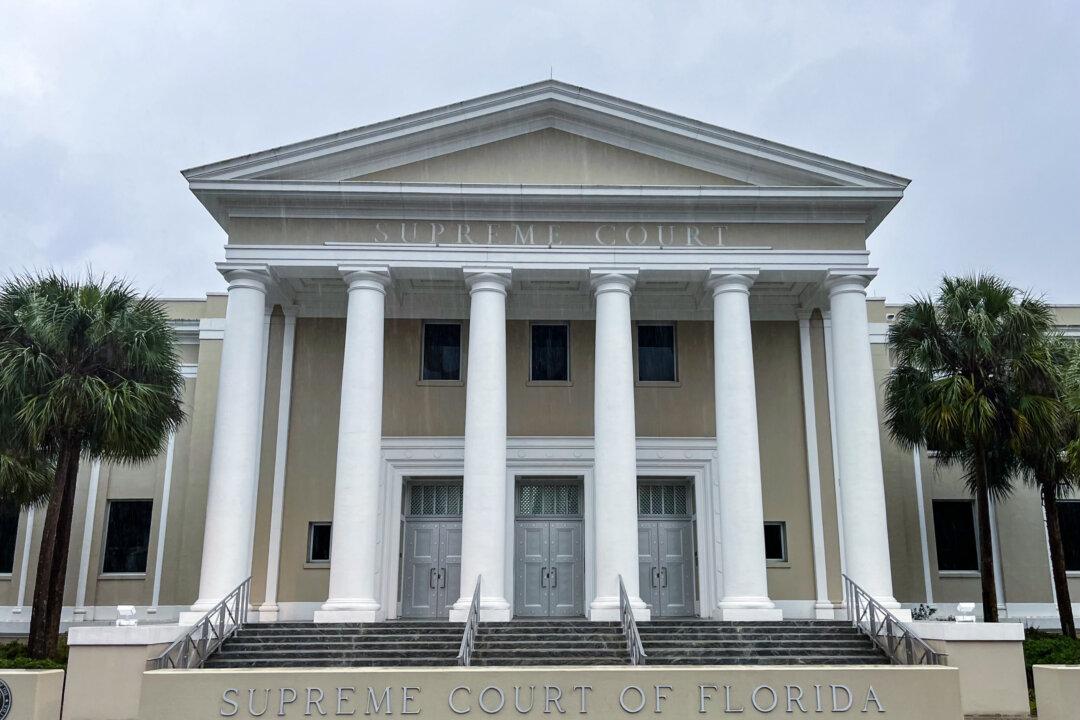Florida’s top court on Aug. 21 approved a warning that will accompany a proposed constitutional amendment that would guarantee access to abortion before fetal viability or when the procedure is deemed necessary to protect a pregnant woman’s health.
Voters in November, when deciding on the Amendment to Limit Government Interference with Abortion, will be told that the proposal, if approved, “would result in significantly more abortions and fewer live births per year in Florida.”





